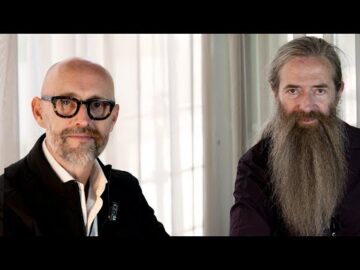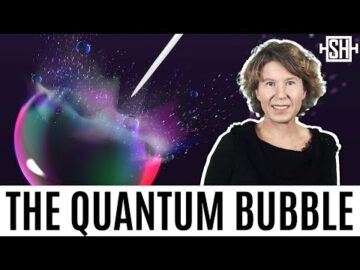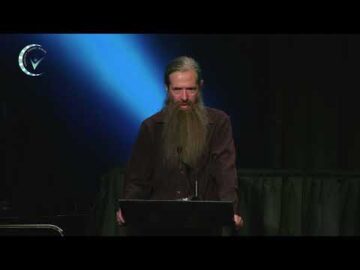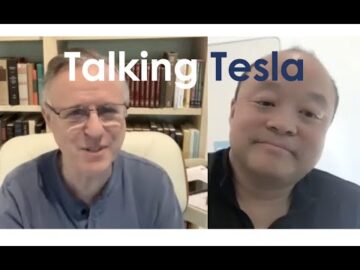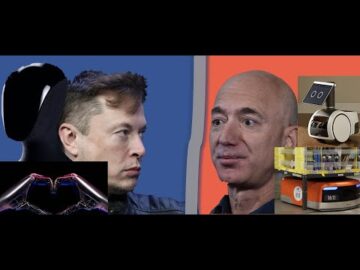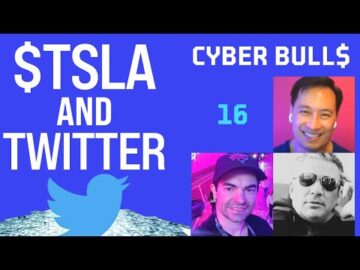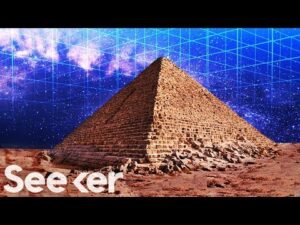Yonatan Cohen is the CTO of Quantum Machines.
I, Brian Wang of Nextbigfuture, interviewed Yonatan at the Q2B quantum computer conference yesterday, December 6, 2022.
Quantum Machines makes a comprehensive hardware and software platform for performing the most complex quantum algorithms and experiments and advancing the world of quantum computing.

The heart of their technology is a pulse processing unit. It controls the lasers and other physical interactions with quantum computing hardware. The quantum can be trapped ion, neutral ion or superconducting based systems. Research labs, universities and smaller companies that cannot afford their own hardware control teams need Quantum Machine technology. Even larger companies can mix in Quantum Machines systems.
Quantum processing hardware have arrays of qubits and how they behave and how you prevent or minimize crosstalk or how you control the processing is critical to proper or more optimal performance.
Quantum operations are where send signals or the pulses are sent. This can be the energy to move from electrons from one orbital level to another or to manage qubit states.
The Quantum machine pulse processing and other hardware and software are abstraction layers to the operations. Although, the industry still being in a state where there is research and scientific discovery in the systems means that customizing physical systems is required

QUA is Quantum Machines pulse level programming language.
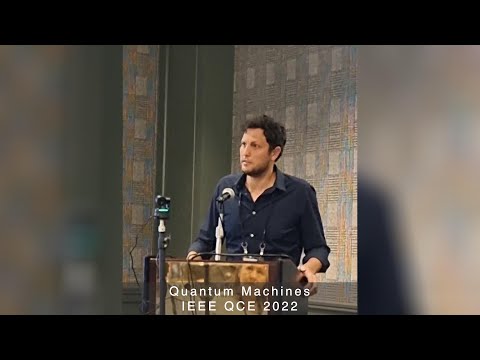
Pulse processing unit and the orchestration platform works with all of the high level quantum software libraries (Qiskit) and complies with Open cousin 3 which is the gate level standard.
Quantum developers work with Qiskit which communicates to Open cousin3 standards and then access the QPU hardware with QUA programming language.
It is part of the evolving quantum computing technology stack. The technology stack is something the quantum computing industry is building up to mirror what has been learned is required from the classical CMOS computing industries. There are multiple companies working at each level of the stack. Competitors are also partners.
Q-CTRL, a startup that applies the principles of control engineering to accelerate the development of quantum technology, and Quantum Machines, creator of the first complete hardware and software solution for the control and operation of quantum computers, in 2020 announced a global commercial partnership to integrate Q-CTRL’s firmware into Quantum Machines’ quantum hardware platform.
They are modularizing and isolating the problem while still maintaining flexility.

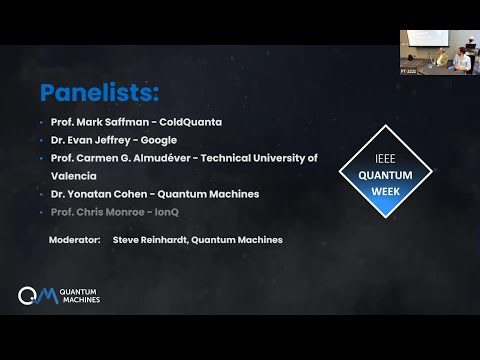
Quantum Machines is working at the new Israeli quantum computing center. They have over 200 customers at academic institutions and companies.
They are using neural networks to improve quantum interfaces (AI for Quantum to get Quantum for AI).
Real Time Error Mitatigationwith Real Time Calibrations and Re-Calibrations
They are reducing errors with by embedded calibrations.
It is critical in quantum system to minimize all sources of errors.
It can take hours to calibrate the QPU and state preparation. Setting up the connection of the quantum system and the classical computing. There can be say 100 shots or operations and then QM has automated calibrations shots for frequent and fast calibrations. These can become dominant errors. It is preventing drift or degradation.
Quantum Machines has about 130 people. They have a little over $100 million in funding. They acquired Qdevil which was working on control electronics. There are 20 people in Denmark and teams in France, Germany and US.
Yonatan hopes Quantum practicality will be reached in 4-5 years.
Brian Wang is a Futurist Thought Leader and a popular Science blogger with 1 million readers per month. His blog Nextbigfuture.com is ranked #1 Science News Blog. It covers many disruptive technology and trends including Space, Robotics, Artificial Intelligence, Medicine, Anti-aging Biotechnology, and Nanotechnology.
Known for identifying cutting edge technologies, he is currently a Co-Founder of a startup and fundraiser for high potential early-stage companies. He is the Head of Research for Allocations for deep technology investments and an Angel Investor at Space Angels.
A frequent speaker at corporations, he has been a TEDx speaker, a Singularity University speaker and guest at numerous interviews for radio and podcasts. He is open to public speaking and advising engagements.

